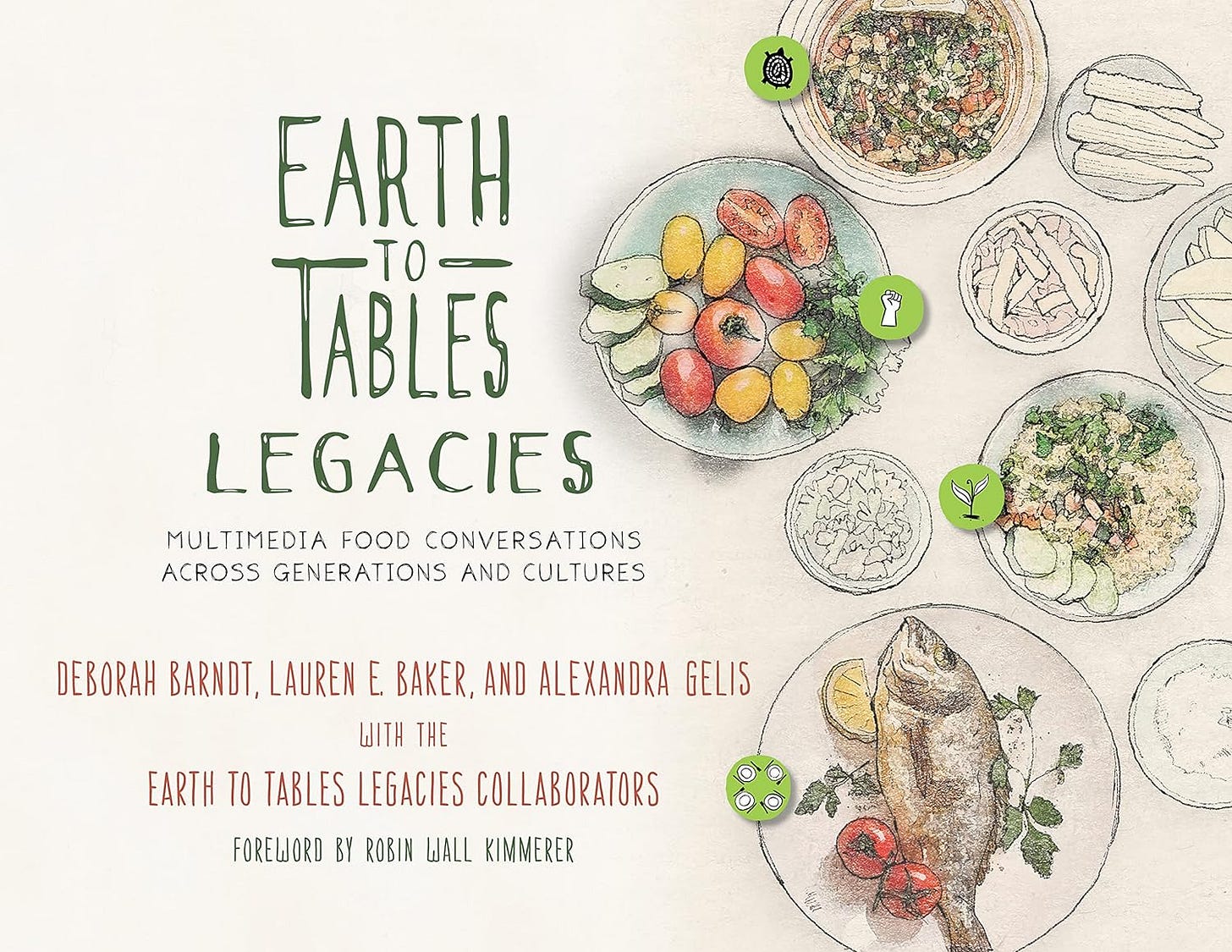Every now and then, I discover a special book I want to share with you—so special that it deserves a solo appearance on Green Reads (where I usually feature 3-4 books). This one is important because of the significance of the topic, its collaborative creation, and its multiple formats. I hope you’ll take a careful look at it, consider it for yourself or as a gift, and—especially—recommend it to your local library, so it can be shared.
Earth to Tables Legacies:: Multimedia Food Conversations across Generations and Cultures, by Deborah Barndt, Lauren E. Baker, and Alexandra Gelis, with the Earth to Tables Legacies Collaborators
From the publisher:
This book was born out of a series of conversations by a group of collaborators committed to challenging the global food system and creating alternative, sustainable, and just alternatives. Here is what the publisher says about it:
Climate crises, a global pandemic, farmer protests, diet-related diseases—all of these are telling us that the indus…
Keep reading with a 7-day free trial
Subscribe to Thyme, Place & Story to keep reading this post and get 7 days of free access to the full post archives.




